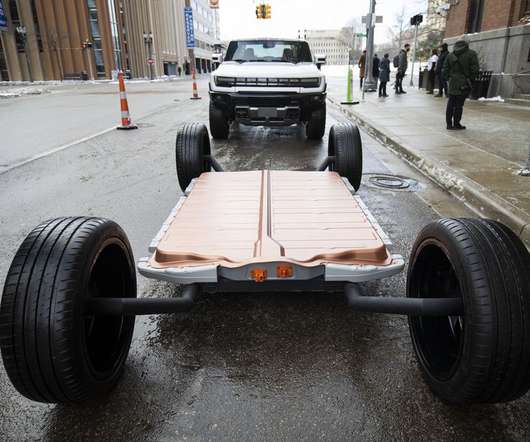Vanderbilt researchers find iron pyrite quantum dots boost performance of sodium-ion and Li-ion batteries
Green Car Congress
NOVEMBER 12, 2015
Researchers at Vanderbilt University have demonstrated that ultrafine sizes (∼4.5 nm, average) of iron pyrite (FeS 2 ) nanoparticles are advantageous to sustain reversible conversion reactions in sodium ion and lithium ion batteries. A paper on their work is published in the journal ACS Nano. nanometers in size.












Let's personalize your content